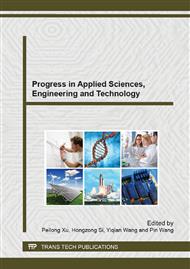p.3171
p.3175
p.3179
p.3183
p.3187
p.3191
p.3195
p.3200
p.3204
Research on Intelligent Algorithms for Energy-Aware Scheduling in Computational Grids
Abstract:
As the features in Computational Grids such as heterogeneous and dynamic, grid task scheduling is an NP-complete problem. For existing energy consumption in CGs ,and based on the study of scheduling algorithms and energy, this thesis selects four kinds of intelligent algorithms GA, DE, HC and SA to analysis and implementation, and relatively researchs their makespan and energy consumption for energy-aware scheduling.
Info:
Periodical:
Pages:
3187-3190
Citation:
Online since:
May 2014
Authors:
Keywords:
Price:
Сopyright:
© 2014 Trans Tech Publications Ltd. All Rights Reserved
Share:
Citation:


